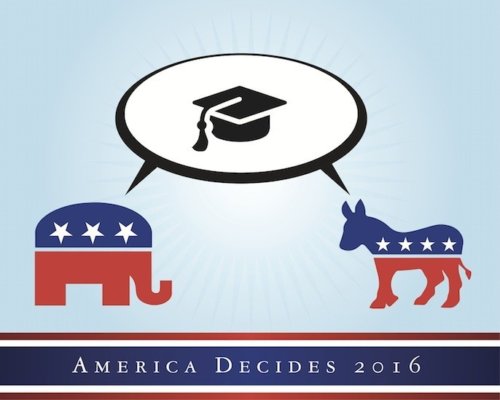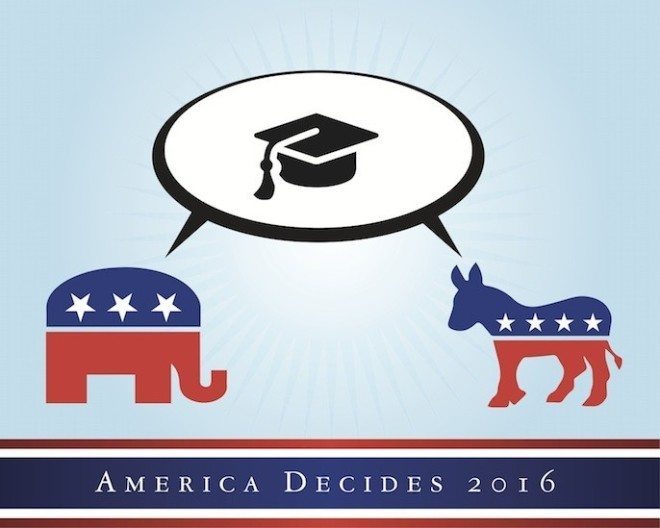It’s August and the Back to School sales are ramping up in earnest, at least here in the nor’east. The sales started in July for the more southerly US climes, but that’s because they’re already back in the classrooms. In any event, it’s time once again to be thinking about education, and the issue is now near the top in this presidential election.
One of the more popular articles making its way around electronica is this one that essentially summarizes the findings of John Hattie, an educational researcher who’s written a slew of books on best practices. He suggests that achievement standards, focusing on smaller class sizes, and pouring more money into the educational system are not the answers and have little effect on student performance. He also questions school choice as a viable public policy. Of course, politicians on the right and left will pick and choose what they want from his message, with Democrats wanting more money and Republicans wanting more accountability, as if the two were completely opposite.
Educational access, attainment and benefits have been tied to the relative wealth of families and communities for the better part of United States’ history, so it should be no surprise to anyone that we are presently confronted with a system that’s as fractured as our income gap. Schools in wealthy communities tend to perform better than those in less wealthy and poor communities and the willingness of politicians to spend money where it should be spent (key concept) lends itself to schools where teachers can teach and students have every opportunity to learn.
Most of the Republican candidates for president support the free-market, pro-corporate model for schools, and the results have been disappointing at best to demoralizing at worst. Governors Scott Walker (falling in the polls) and Chris Christie (can you fall below zero in you polls?), have done more to demonize public school teachers than the other candidates and promise to do the same to the rest of the country if they are elected. Jeb Bush supports the Common Core standards, which really isn’t going to endear him to any particularly large constituency, but he’s also against public unions. The other candidates want local and state standards, which have not worked in the past and will not help student performance in the future.
The Democrats want more money for universal pre-school and aid to schools in poor and depressed areas of the country. Hillary Clinton has also recently unveiled a higher education policy that focuses on student debt. She would probably never get $350 billion over ten years from a Republican Congress, but her plan would put pressure on the right to relieve millions of students from crushing loans that are sapping their economic prospects. The Republican candidates have joined her in trying to address the debt issue, but right now the best we can say about them is that they’re market-oriented, including Marco Rubio’s plan to have wealthy investors essentially buy an interest in your future earnings in return for their investment in your education. I wonder if he’s also going to provide students with a free saddle so that your investor can sit on your back.
Given the years of blame and economic hardship that teachers have had to endure, it’s no wonder that there’s a shortage. And given the attitude that many national and state leaders have about teachers, it’s no wonder that qualified students are looking at other fields of endeavor. The truth is that we pay a great deal of lip service to wanting a highly qualified, well-trained teaching staff at every school, but the best and brightest are not stupid; they see what’s going on in education and are increasingly turned off to it. And since we don’t have the best and brightest going into government, the solutions will be doubly difficult to come by.
For more, go to www.facebook.com/WhereDemocracyLives or Twitter @rigrundfest









